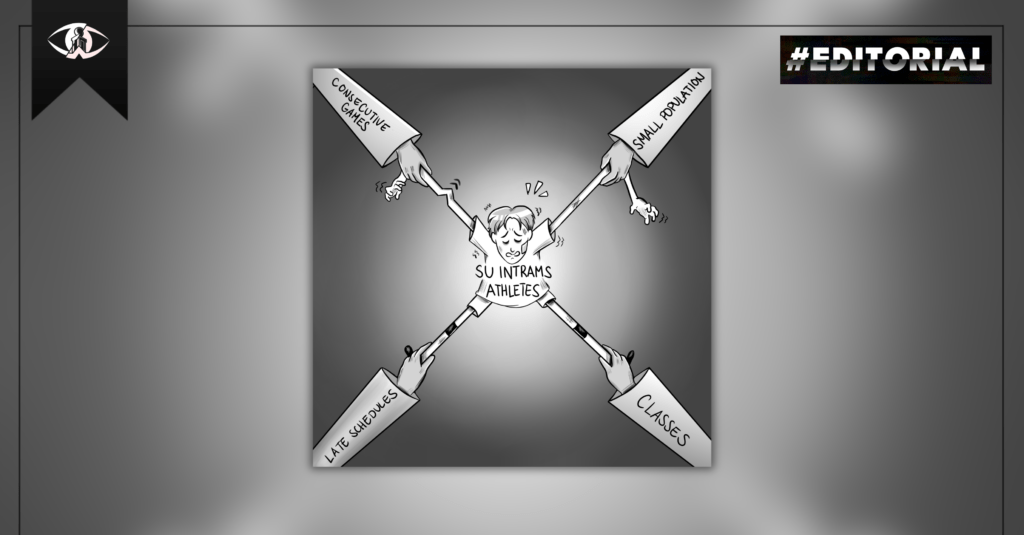The Weekly Sillimanian | March 8, 2024

Despite the overall success, several issues plagued this year’s Silliman University Intramurals. Games running as late as 11 p.m., last-minute schedule changes, and simultaneous matches left players drained and even angry.
In general, issues like these are not new—only emphasized because of factors such as the denial of the proposal to move the intramurals date and the rescheduling of games. It’s easy to point fingers, but finding someone to blame for how things turned out is futile. Too many developments and decisions from different parties led to uncontrollable outcomes.
That does not mean nothing can be done. Instead, the outrage should be the wake-up call to work together to enact and strictly enforce student-friendly and inclusive policies regarding the intramurals. All parties should work together—from the students, the colleges, those involved in organizing the tournaments, to the administration—to agree on policies prioritizing students’ welfare.
As it happened this year, students got caught in the middle of all the turmoil while dealing with injuries and illnesses. The stress of the whole situation also led to anger and hostility among students.
We could argue that these issues are part of sports fests, that it is in the challenging nature of athletic meets to have hectic schedules. There is only a limited time for the intramurals before classes return after all, not to mention venue bookings and other resources required should any extensions occur.
But those playing are still students—not professional or varsity athletes. More consideration should be given to making the intramurals a source of fun instead of stress or undue frustration.
Considerations must be given to small colleges so their matches for different sports do not spread their limited number of players, supporters, and resources too thin.
Considerations must be given to students in courses that still have school-related commitments during the intramurals, such as those from health allied courses and law school. They may not have time to be on standby for their matches in case last-minute changes or defaulted games following the rule of succession arise.
More consideration must be given to students’ health and stamina by setting a strict curfew, limiting the number of consecutive matches, and—if not possible—setting a required time for breaks between matches.
Enforcing guidelines consistently across tournaments is not easy and could lead to logistical challenges. But that means all parties should spare no effort to support and help solve any issues that may arise.
This year’s intramurals may have had unique circumstances that led to these challenges. But the fact remains that the system left leeway for problems to occur. In the middle of it all, students juggled the consequences of decisions they did not make.
For their sake, everyone must work together to improve the intramurals and make each iteration a truly enjoyable one—no matter the individual or collective circumstances.
This year’s intramurals successfully concluded with several triumphs worth celebrating. But if we continue to leave student concerns to fester, the victories would be spoiled by frustration and indignation.


